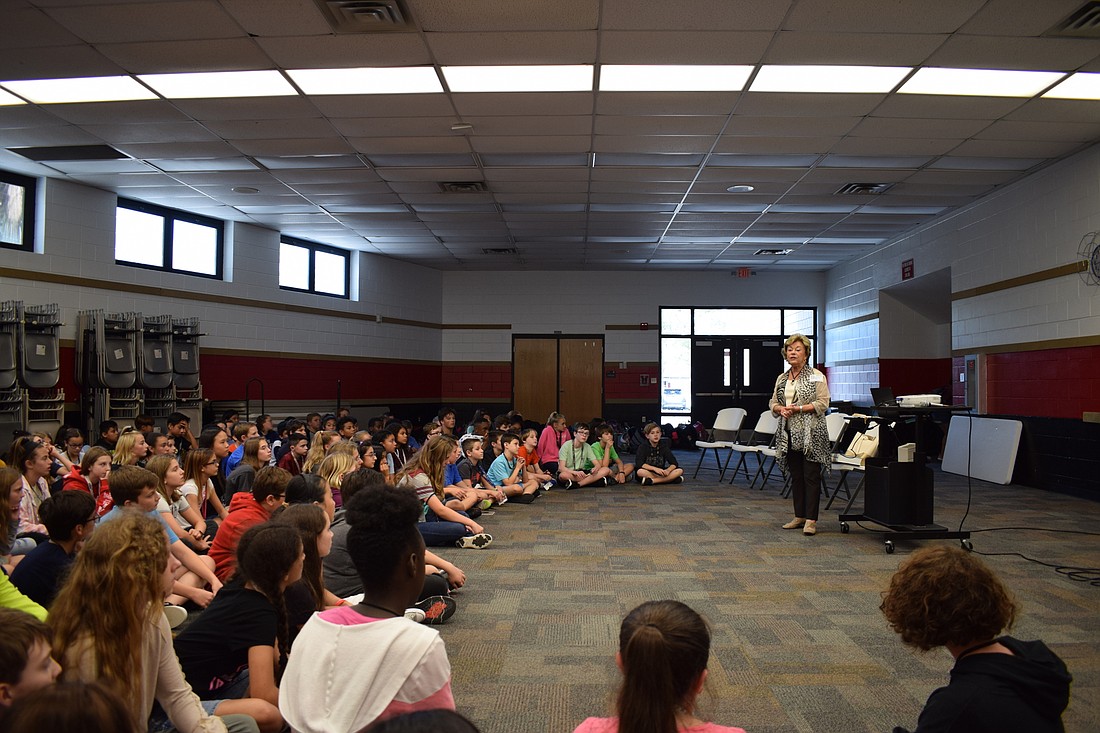- April 24, 2024
-
-
Loading

Loading

The story Rifka Glatz shared with students at Braden River Middle School recently was deeply personal and moving.
She shared how she survived the Holocaust, telling the students in Pat Aaron’s sixth-grade critical thinking class of the horrors and inhumanity she witnessed.
Some of the sixth-grade students, like Tien Thai, listened closely as the 81-year-old Glatz told her story.
“Evil can affect everyone around you,” Thai said after listening to Glatz.
Thai said she hopes that in the future she will have the courage to stand up against injustices.
Glatz was born in 1937 in Hungary. She was 6 when she was forced into the Bergen-Belsen concentration camp in the waning years of World War II. It was the same camp where Anne Frank died after being transferred from Auschwitz.
“We need to learn to live in peace with each other,” Glatz said as she began her talk.
Nazis took “children like you, adults like me and put them in a chamber,” she said. “They said [it] was going to be a shower, and gassed them and sent their bodies to a crematorium.
“I’m asking you, what kind of people do such things?” she said.
Aaron invited Glatz to give a presentation after her students read John Boyne’s “The Boy in the Striped Pajamas,” a novel that tells the tale of a boy meeting another on opposite sides of a fence in the midst of the Holocaust.
“I think it was so eye-opening,” Aaron said of Glatz’s narrative. “It had more of a meaning than (students) thought it was going to.”
As a precursor to Glatz’s visit, Aaron said she taught her students about World War II and some of the history behind it. That led her students to a discussion of whether the Holocaust could happen again.
They decided that yes, it could, Aaron said.
Glatz gained her freedom from Bergen-Belsen in 1944 through a series of interventions by people outside the camp. She traveled to Switzerland and eventually to Israel. Her mother and older brother survived, but her father was killed after collapsing during forced labor work detail, she said.
She spoke of those who turned a blind eye to what was happening around them.
“Not everybody agreed to what was happening, but they did not speak up. That is their guilt, if they have one,” Glatz said.
Student Jack Fletcher said Glatz’s talk made him think about respect for others.
“I’m not going to treat people with disrespect,” he said, noting that he will work to be more inclusive. “She went through a lot in her childhood.”
Aaron said she hopes all the students took away lessons to love and accept everyone.
“Just because we’re different doesn’t mean we can’t still be friends,” she said.
Glatz said she hopes students will be inspired to be considerate, pay attention, speak up and be kind.